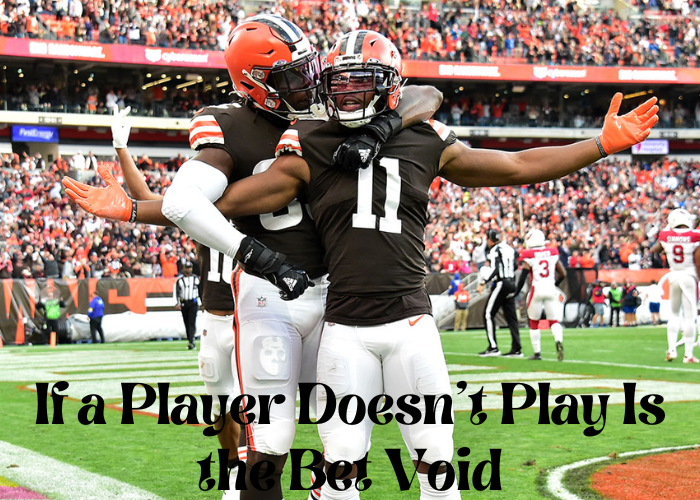It’s a question that pops up frequently in the casino world – if a player doesn’t play is the bet void, is their bet still active? The answer isn’t always straightforward, but as with most things in gambling, it depends on the situation. In this article we’ll take a look at what happens when players leave the table (or when they’re absent for other reasons), and how bookmakers and players can protect themselves against any potential pitfalls. So whether you’re a punter looking to make sure your wagers are safe, or a bookie trying to avoid losses, read on for all the info you need.
In Sports, There Is an Unwritten Rule That if a Player Doesn’t Participate in the Game, Their Bet Is Voided
There is an unwritten rule in sports that if a player doesn’t participate in the game, their bet is voided. This rule is generally followed because it would be unfair to allow someone to bet on a player who isn’t playing. However, there are exceptions to this rule. For example, if a player is injured and doesn’t play, their bet may still be valid if they were injured before the game started. This exception is usually made because it would be unfair to void the bet if the injury was beyond the control of the player. Similarly, if a player is sick or has an emergency, they may still be able to place a bet. In these cases, it is up to the individual sportsbook to decide if the bet will be voided or not.
This Rule Comes From the Idea That if You Are Not Physically Able to Play Then You Shouldn’t Be Betting on the Game
There are a few rules in gambling that seem to make sense at first glance but upon further examination, don’t hold up to logic. One of those rules is if a player doesn’t play, is the bet void? This rule comes from the idea that if you are not physically able to play then you shouldn’t be betting on the game. In reality, this rule is more of a way to protect the bookies than it is to protect the gamblers.
If a gambler bets on a player that doesn’t end up playing, the bookie can easily justify not paying out the bet. After all, the gambler should have known that the player wasn’t going to play. However, if the bookie pays out the bet anyway, they are opening themselves up to all sorts of risks. For example, what if the player gets injured after the bet has been placed? The bookie would then be on the hook for paying out two bets: one to the gambler who bet on the player and one to the gambler who bet against the player. As you can see, this rule is more about protecting the bookies than it is about protecting the gamblers.
There Are Exceptions to This Rule, Such as When a Player Is Injured and Can’t Participate in the Game but Is Still Being Paid
Most people who bet on sports do so with the understanding that if a player doesn’t play is the bet void, then the bet is void. There are exceptions to this rule, such as when a player is injured and can’t participate in the game but is still being paid. In this case, the bet would be considered active and the person who placed the bet would still have a chance to win or lose. However, if a player is suspended or ejected from a game, then the bet is normally voided. This is because the player’s status has changed and they are no longer able to participate in the game. As a result, the bet is no longer considered active and the person who placed the bet will not have a chance to win or lose.
Bettors Should Always Check With Their Bookmaker to See if Their Bets Will Be Voided if a Player Doesn’t Play
Bettors should always check with their bookmaker to see if their bets will be voided if a player doesn’t play. This is because if a player doesn’t play, the bettor will lose their investment. In addition, if a player is injured or suspended, the bet may also be voided. Therefore, it is extremely important for bettors to be aware of these possible outcomes before placing their bets.
In Some Cases, Players Can Even Place Bets on Themselves Not Playing in a Game
Sports betting is an activity that can be done on many different levels. Some people bet on sports for fun, while others do it to make money. There are even some people who bet on sports as a way to earn a living. One of the most common types of sports betting is placing a bet on whether or not a particular player will play in a game. In some cases, if a player doesn’t play is the bet void, the bet is void and the person who placed the bet does not lose any money. In other cases, if the player does not play, the bet is still active and the person who placed the bet loses their money.
Conclusion
In poker, if a player doesn’t play their hand, the bet is void. So, if you’re ever in a situation where you don’t feel comfortable playing your hand, you can simply fold and no money will exchange hands. However, if you do choose to play and win the pot, remember that good sportsmanship dictates that you should tip the dealer.
